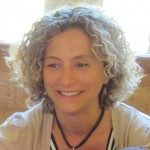Lien vers Pubmed [PMID] – 19149553
Curr HIV Res 2009 Jan; 7(1): 39-50
African non human primates are natural hosts of SIV. The infection is generally non-pathogenic despite high steady-state levels of plasma viral RNA that in HIV-1 and SIVmac infections are associated with progression towards AIDS. The viral loads in the gut also are as high as in pathogenic HIV-1/SIVmac infections; but replication levels are lower in peripheral lymph nodes of chronically infected African green monkeys. There is a transient loss of CD4(+) T cells in the blood in SIVagm and SIVsm infections and an early dramatic and more persistent decrease in the gut. Although SIV in natural hosts is thus cytopathic, the continuous viral replication is not associated with immunopathology. T CD4(+) cells in blood, lymph nodes and gut manifest no or little increase of cell-death by apoptosis. The lymph node and gut architecture is not disrupted. The most striking difference between non-pathogenic SIV and pathogenic HIV-1/SIVmac infections is the lack of chronic T cell activation. Several studies are currently in progress to determine which factors are involved in the maintenance of the low activation level in the non-pathogenic SIV infections. There are two ways in which this could be achieved: (i) a lack of immune activation induction or (ii) an active downregulation of the immune activation. The arguments in favor of each of these two possible ways of immune activation control will be discussed in view of the most recent data in the literature. A particular focus is put on data on the innate immune system and the timing of induction of immunosuppressive mediators during the early phase of SIV infection.


